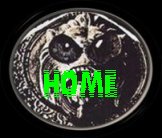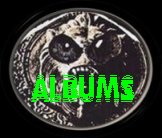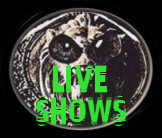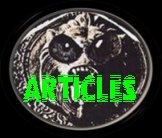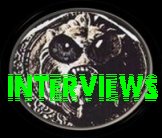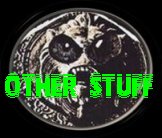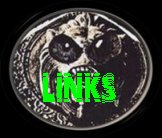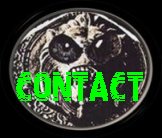The Darkness and the Light Co-Exist – The Helios Creed Interview
2014
By: Dave Cantrell
Caught In The Carousel
With the release of
Half Machine From The Sun – The Lost Tracks from ’79-’80, Helios
Creed’s tenure as the surviving keeper of the Chrome flame has come
full circle. In light of that, Creed sat down at the other end of an
email connection to discuss Sabbath, Hendrix, Damon Edge, the pitfalls
of intense partnership and, umm, balcony-jumping. You can read a review
of the album here (not to give it away, but we’re rather fond of it
here at CITC) but for the time being, settle in and have a listen. This
is history talking.
CITC
- Hi Helios, thanks for taking the time. Many words are attached to you
as a guitarist – psychedelic, metal, experimental, acid punk,
industrial, to cite just a few (I’d say ‘avant’ is missing) and, as a
musician, visionary, all of which seem wholly accurate. You were all of
20, 21 years old when you joined Chrome. What was your musical
upbringing like that you could step into that particular maelstrom with
such assuredness?
HELIOS CREED
- Well my brother who was 2 years older and 2 years hepper than me
turned me onto the the best of the music of the 60’s Psychedelic scene
like Spirit and Jimi Hendrix and I followed him to all the Rock shows
that came through Hawaii at the time. We were almost like twins and
what he tended to like, so did I.
But Rock n’ Roll had
already grabbed me in the 50’s at the very early ages of like 3, 4 and
5. When “You Ain’t Nothing but a Hound Dog” by Elvis, or “Who Do You
Love” by Bo Diddley would come on our parent’s radio in Long Beach, CA,
my brother and I would get so excited we’d run around and around in
circles in our underwear. I loved to rock that early. It just made you
want to move!
By 11 all I wanted
was an electric guitar and by 12 my parents bought me one, and I took
my study of rock very seriously. Each day I waited for school to get
out so I could come home and start practicing.
My brother took me to
see Black Sabbath where my now infamous trip happened. I took 3 hits of
magical Orange Sunshine and some Mescaline and Sabbath’s approach was
different…the heaviness, the darkness and the LOUDNESS! It just was
like a slap in the face. They just took me to a place musical I had
never been. It was pivotal. I was already an accomplished guitar player
at the time, but that experience moved me so much it has effected my
music very deeply every since. I feel that music for them and for me is
a form of magic. Seeing Jimi Hendrix when I was 18 was also pivotal. He
came on the stage and said “Its going to be loud, if you don’t like it
loud you better leave.” Then he began to play “Voodoo Child” really
quietly, but when the drum and bass kicked in he leaped like a gazelle
and landed right on the one! And it got really loud! I couldn’t believe
the power he had over that audience. Conservative Chinese and Japanese
people were jumping down from the balcony to rush the stage. After
every show I’d go home and play for hours trying to understand what I
had heard. So I had spent years studying how to Rock, I wasn’t given a
degree like you get for other things you study, but I did study it
intensively and seriously for years.
I knew back then a
big change would occur in Rock, but I didn’t know how. I just knew I
wanted to be a part of the change. I listened to a lot of Hawkwind and
I wanted to be like them, but weirder. When people asked me ‘what do
you do?’, I’d tell them ‘I play Space Rock and I study rock, because
I’m trying to change it’. And they’d be like ‘yah right’. With Chrome
we were right in there when the change happened. The first time I heard
Chrome I knew it was the band I was waiting for and that its producer,
Damon Edge, was the guy I had been waiting for. American Free Punk,
Punk Rock, Industrial, Art Rock, those were the changes. Rock has not
been the same since.
CITC
- What was the artistic/musical environment like in San Francisco in
the mid-70′s? I hung out there quite a bit in the late 70′s, moved
there for nine years beginning in 1981 and recall it being a bit more
creatively anarchic than it is now but I wasn’t a musician in the thick
of things.
HC -
In the mid 70’s it was all white hippies wanting to be black Blues
musicians. I couldn’t understand it. I mean we all know where
Rock comes from, but no one was being original or authentic. On the
radio Rock had gotten this burnt out mellow sound. I hated all of that.
I was gigging in North Beach, at the Beat Poet’s cafes for money,
writing songs with Chrome’s original member Gary Spain. He brought me
Chrome’s first album “The Visitation” in 1976 and I was excited,
because no one was doing what they were doing at the time. I felt I had
to meet its producer Damon, because he was tripping out and the work
was weird and stoney, and no one else was stoney like they were. It
wasn’t exactly my style, but I knew exactly what to do with it. I knew
that they needed me and I convinced Damon to let me audition and I
joined Chrome. Then the Punk scene exploded and shows started happening
at the Mabuhay Gardens also right there in North Beach, with bands like
the Dead Kennedys and Negative Trend. This was all in 1976. It was a
very free and experimental time. The change had begun.
CITC
- In Simon Reynolds’ “Rip It Up And Start Again,” you describe hearing
Never Mind The Bollocks, Here’s the Sex Pistols at Damon’s house
followed by tapes he’d made while at Cal Arts studying under Allan
Kaprow – ‘not quite right music,’ he called it – and suggesting a
mash-up of the two, AKA acid punk, as the way forward. Once you hit
upon that did the Chrome approach, the Chrome sound, fall together
pretty easily or did it take a while to bend it into shape?
HC
- We started making Alien Soundtracks in 1976, so we were already
making stuff before Never Mind the Bullocks came out. We released Alien
Soundtracks in 1977, the same year as the Sex Pistols. But yes there
were many many discussions about our sound. Damon and I loved to talk
about music, and concepts about our approach. Then we’d just go in the
studio and be spontaneous. We had the same idea about how to to make a
marriage between the fire of the early Punk scene, art music, the
influences we were feeling from American Free Punk from New York like
Iggy Pop and the Stooges etc., and also hard Rock, weirdness in
general, noise, and also to make Psychedelic music which we both loved.
We just wanted a to bring out the darkness to be more honest, because
the Hippies had taken Psychedelia to this flowery place that wasn’t the
whole story. The darkness and the light co-exist ya know.
Anything that Damon
brought to the table with noise and experimentation and that wasn’t
normal, I was all over it. His style infatuated me, that is why I loved
the first Chrome album he did without me, even though it didn’t rock. I
was completely turned on by it. He’s say “listen to this, this is
really out there shit’ and ‘here is when we really freaked out on
this’…and I just loved those moments. He was being my teacher and I was
applying everything I had digested about rock and weirdness and
Psychedelia into our music. We were both just into the same stuff, like
UFOs, bad science fiction movies. Yes it came together easily. We just
began to create and Damon and I were just on the same page and our
meeting was a catalyst for each of us to go further and further in our
experimentation. It was amazing.
CITC
- Many of the tracks on Half Machine From The Sun are a little less
sonically confrontational than Chrome’s reputation would suggest. The
word ‘catchy’ is even used in the press release with the record. I
mean, “Sound and Light” should have been a hit, same with “Sub
Machine,” “The Rain,” “Something Rhythmic” (especially that). Was their
relative accessibility possibly the reason why some of these tracks
were excluded in the first place?
HC
- Absolutely that was the case. With “The Rain” for instance Damon and
I both felt it didn’t sound like Chrome and, in our youth, we had our
expectations of Chrome, our theories musically and so forth. It didn’t
fit. But also there are other reasons as well that we didn’t use many
of these songs. Although Damon was my best friend and through our
collaborations we were very very close, there were tensions. He didn’t
want me to have too much power, too much control. Three of the four
songs you mention, are mine. I had really started flowering as a
songwriter and instead of Damon seeing what these songs could have done
for Chrome, he wanted to squash it. These fears creep into partnerships
sometimes, jealousies, apprehensions. Its a great time though to let
fans hear more of the creative range of Chrome, because people seem to
be reflecting back in time, a lot right now. With this final release of
this work that Damon and I did together, it shows the turning point.
Back then it would have showed we are more than just shock therapy,
that we could actually write songs, that we matured. I feel that
Damon’s pleased with this release now.
CITC
- If Damon and you had been able to get together again when he began
calling you in the mid-90′s, what direction do you think it would have
taken and did it seem that whatever energy had originally been
responsible for you two parting ways had mellowed with age?
HC
- No sadly it hadn’t mellowed with age. Damon was a strategist and I
think he had his reasons for wanting to work again, and it probably
wasn’t due to a mellowing! I was still open to the idea because I felt
like Damon and I were musical soul mates and I was open to seeing what
we’d do. My solo career was at a high at that time, but working again
with Damon and Chrome appealed to me. Anyway we did collaborate
with the material he was making at that time. His German label asked me
to finish the tracks and make a posthumous collaboration and Angel of
the Clouds was the result, which we are re-releasing shortly. It was
initially put out in Germany in 2002. You will be able to order it from
Cobraside Distribution out of LA or you can ask your records stores to
order it from them.
CITC
- Wikipedia, which never lies, says you’re an avid model train
enthusiast. When did that happen, have you programmed any wild feedback
guitar effects into it, and has it taken over your front room?
HC
- I just got a box of my childhood drawings from my sister whose just
moved back to California. There were things in there I did like 3-6
years old and many are of trains! I kind of remember doing them and
amazing memories came back to me of watching trains in Long Beach where
we lived when I was that little. I’ve always loved them as far back as
I can remember. I wanted to be a conductor. The iron horse, thats what
the Indians called them. I did use samples and feedback and high pitch
feedback and experimentations with my model trains and my guitar, in my
solo work. A lot of that is on my Amphetamine Reptile albums during the
late 80’s and early to mid 90s’. They did take over my living room then
and we lived right around the corner from a big rock club and musicians
would come over and play with my trains before they went on stage. But
after that I went on tour for years and honestly I’ve never gotten my
trains up and running like they were in the 90’s.
